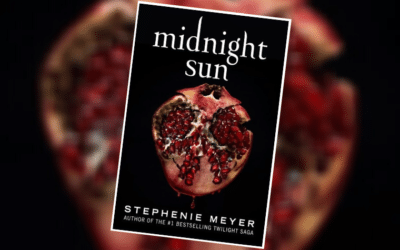Short answer: Witch, please. Of course she can.
So if you like books with …
… Complicated heroines …
Circe is narrated from start to finish by the title character, and she is nothing if not complex. Her story begins as the least-loved child of the great titan Helios (ie The Sun) and explores how she navigates her father’s court, the politics of her mother’s people, the river nymphs, and the family dynamics of her siblings. She meets Prometheus on the eve of his infamous punishment. She lives on the outskirts of everyone’s notice, unloved and unwanted and unremarked upon. And then she discovers that she loves a mortal. And she might lose him. So she makes him like her, and in doing so creates a creature who no longer looks her way.
But in the process, she discovers that she is not just a goddess-nymph like everyone else. She is something more: a witch.
“When I was born, the name for what I was did not exist.”
She finds power and purpose and eventually expulsion in her witchcraft. And it is fascinating to watch her hone it.
… Greek mythology …
You will see so many of your favorites in Circe, recrafted for the witch’s perspective. You will see Pasiphae, the mother of the Minotaur and Circe’s older sister, in the most intimate of moments. Selene, Circe’s aunt, and the all-important Moon goddess. You will meet Athena in one of the only scenarios where she is rendered impotent. Hermes, at his tricksiest. A super-hot, craftsman version of Daedelus. And one of the most richly drawn portrayals of Odysseus that I have ever read.
The war did not break him; it made him more himself.”
 … Monsters and motherhood …
… Monsters and motherhood …
Fear and trembling are not the proscriptive reactions for Circe. She is not fearless, but as she becomes more and more herself over the centuries, the fear others have of her diminishes each monster’s ability to unsettle her. Much like I mentioned in my review of A Quiet Place, it is the terrifying newness and impotence of motherhood that scares Circe the most.
I did not go easy to motherhood. I faced it as soldiers face their enemies, girded and braced, sword up against the coming blows. Yet all my preparations were not enough.
Circe makes monsters, fights monsters, begs of monsters, is considered a monster, and yet we read the most human of realities in this immortal’s tale. She tells the reader, “Witches are not so delicate.” That is, until they love. Until they create life. Oh, motherhood.
… Feminism …
Circe’s story is mostly about her exile on the island, Aiaia, those who visit her there, and those who fear to. But from her perspective, it becomes a story about how the tales are told by men, and how they change when they are relegated to the heart of a woman.
Humbling women seems to me a chief pastime of poets. As if there can be no story unless we crawl and weep.
Everyone has an opinion on Circe, and while at first she languors over them, she realizes her own strength the more she bucks up against their expectations and biases. In her last conversation with her father, she tears asunder the chief worry of her long life – his approval.
‘You have always been the worst of my children,’ he said. ‘Be sure you do not dishonor me.’
‘I have a better idea. I will do as I please, and when you count your children, leave me out.’
… you have to read Circe.




